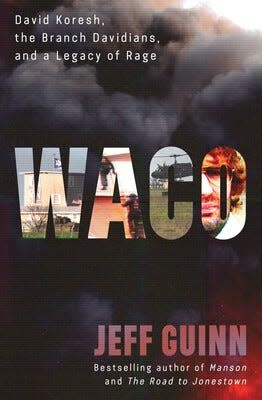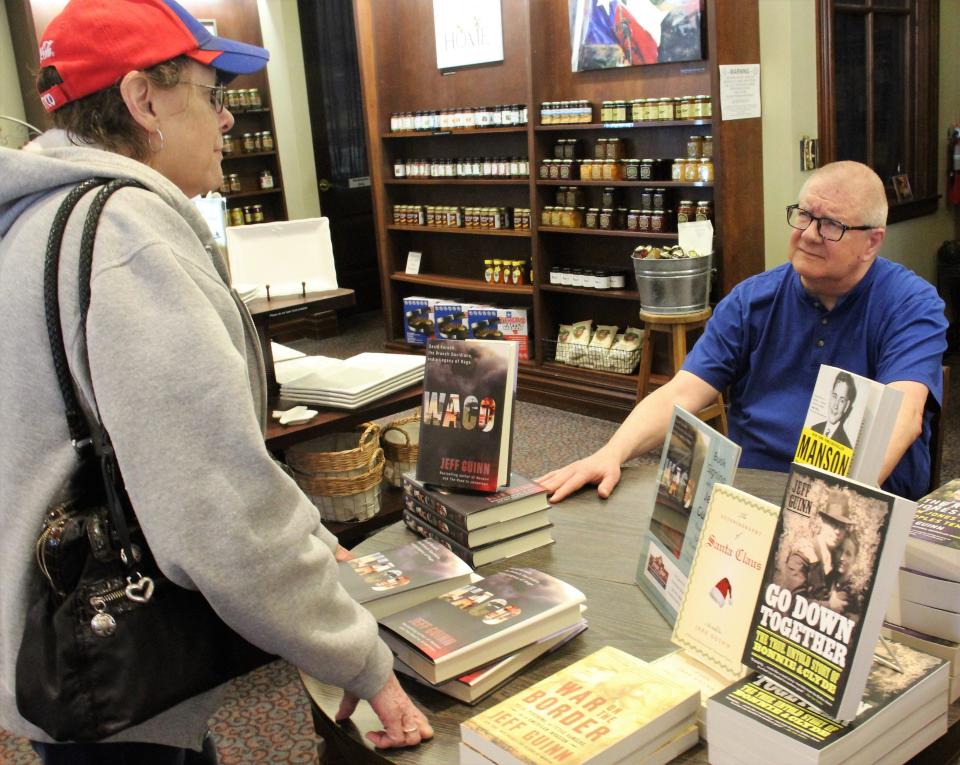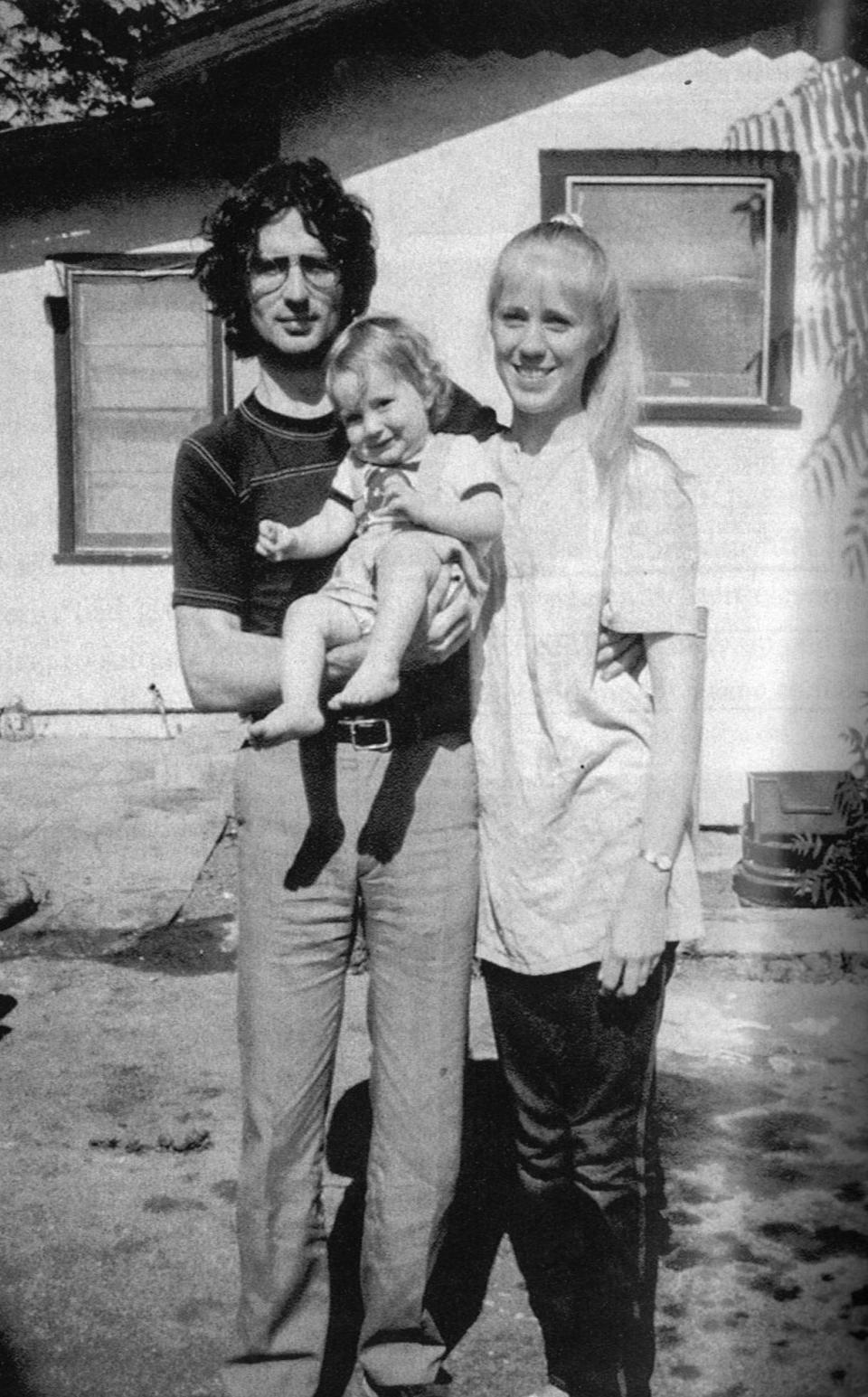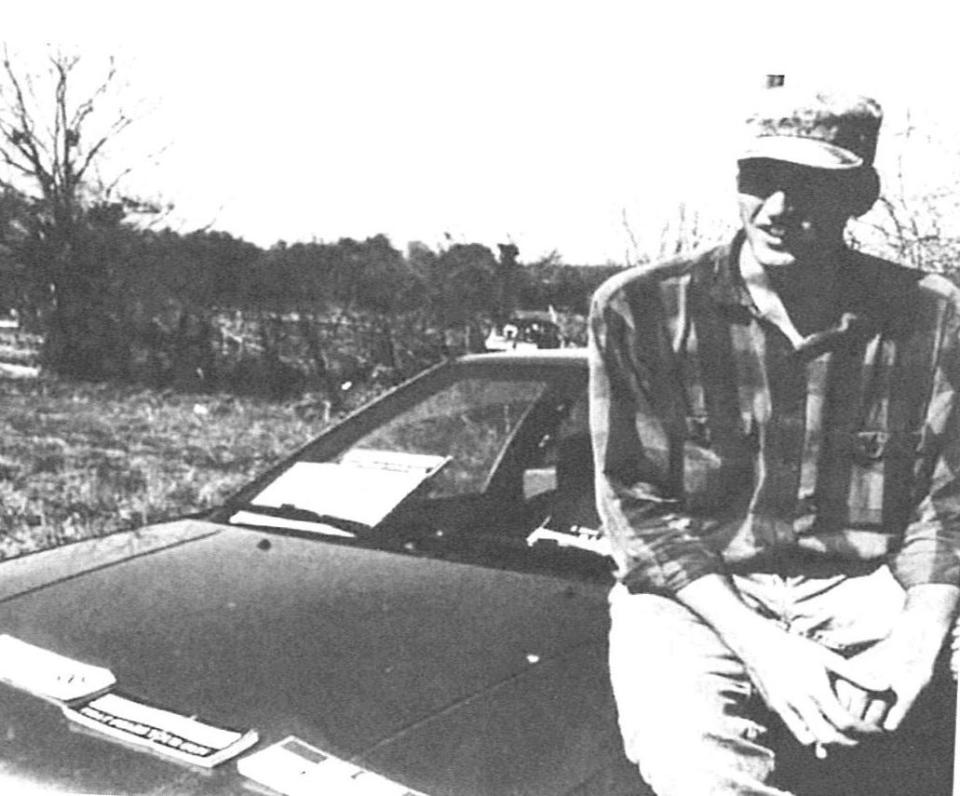30 years later: New book delves into Branch Davidian tragedy near Waco
- Oops!Something went wrong.Please try again later.
Jeff Guinn calls the burning of the Branch Davidian compound near Waco 30 years ago a tragedy.
"Terrible misjudgments were made," the Fort Worth-based author said. "Some of the ATF agents involved in it, they cry. It was traumatic."
Guinn recently has been on tour to promote his latest book "Waco: David Koresh, the Branch Davidians, and a Legacy of Rage." Guinn has won acclaim for previous works about two other cult leaders, Charles Manson and Jim Jones. He also has written about Bonnie and Clyde.
Wednesday marks the 30th anniversary of the day that the compound near Waco was destroyed, killing almost 80 members of the group. Leader David Koresh also died, found shot to death.
Guinn believes what happened in Waco was a springboard to incidents pitting a disgruntled citizenry against the government.
Where's Waco?
Guinn set his sights on a story that put Waco on the map, though fixer-uppers Chip and Joanna Gaines today bring tourists to central Texas.
Visitors still can see remnants of the Davidian compound, Mount Carmel, which is about 20 miles northeast of the city. A small chapel there has become a sort of visitors center, Guinn said.

From a hill, a visitor can get a perspective of the layout. Across the street are the houses that had been occupied by ATF agents since January 1993. They were not hideouts; Branch Davidsons knew they were there for weeks.
"It makes it all horribly real," Guinn said, "when you see it really exists."
There, Guinn had hoped to meet survivors of the 51-day siege that met a fiery climax April 19, 1993. But, he said, when they learned he attributed Koresh's beliefs to those promoted in the 1890s in Florida by Cyrus Teed, "I was no longer popular."
He'd get back to it during his storytelling, but Guinn said followers still remain loyal to Koresh.
He did walk the site with ATF and FBI agents.
"You can still feel it," he said. "It's a complete tragedy."
Jones vs. Koresh? Love differentiated the two leaders
Recently, Guinn was in Abilene for a signing at a downtown bookstore.
After talking to one book buyer who grew up in Waco, Guinn, with several other gathered at his table and listening intently, opened up about his book project.

As lively cowboy music played - a sort of ironic backdrop to the Texas tale telling - Guinn shared information and insights. At one point, he commented that he has spent many years of his life researching and writing the books on Manson, Jones and Koresh.
He paused.
The three have things in common, he said, "but they have this huge difference and I had not thought about it until I was writing this book."
Manson's surviving followers wonder, "How could I have been so dumb?" Beyond being young and using drugs, they admit there was no excuse.
"I should've seen through him all the way," Guinn described their thinking.
Jones' surviving followers agree that they knew what their leader was becoming.
"The things we were doing were so important, it didn't matter what he was becoming to be like," Guinn said of their post-Jonestown thoughts. "Why didn't we say, 'Enough's enough, you can just go.'"
Every Branch Davidian, Guinn said, still believes in David Koresh.
"He was the Lamb, the book of Revelation and that everything that happened fit his prophesies. That he will be back in translated form and leading the armies of God, just like he prophesized," Guinn said.
That got the writer wondering about the difference in the men themselves.
It came down to love.
"David Koresh convinced everybody at Mount Carmel that he loved them," Guinn said. "And that's what they remember ... how much he loved them. "
Biblical foundation
Koresh knew the Bible, Guinn said. Biblical scholars agree. That knowledge made an impact on his followers.
Guinn said Koresh could read a passage of the Bible, instantly memorize it and tie it to other passages. His followers cherished that, even if they took the passages literally.
"How could he know these thing if he wasn't a prophet," Guinn said they reasoned. "It's uncomfortable to think about in some ways, but they still have this bond with him.
Surviving follower Clive Doyle, who served as a Davidian spokesman before he died in June at 81, sat on the porch of his modest house in Waco waiting for Koresh to return, Guinn said. The author sat with him, a man he called intelligent and well traveled, in the heat there during an interview in 2021.
Why don't we go inside, Guinn suggested.

"No, I have to be here," Doyle said. He didn't want to miss the return of Koresh. Young people had come to the house and said they were David, he said. He knew they were not.
"I can't take a chance. Anybody coming down that street could be him. I have to be ready," Doyle told Guinn.
"That is how he spent his days. He knew David was coming," Guinn said. "He believed with a fervor that David was coming back before he (Doyle) died."
Spoiler alert: That became the perfect ending to Guinn's book.
The belief in Koresh was so strong, Guinn, said that dozen of followers stayed at the compound when it was surrounded by law enforcement.
"They wanted to die," he said. "I don't think any of them thought that dying to fulfill the prophesies would involve agony. This was their reward."
It was about a religious belief
To this day, survivors will say what happened 30 years ago violated their freedom of religion.
"That's what the whole thing was, an attempt to violate their freedom of religion," Guinn explained their reasoning.
The book brings information that many did not know, he said.
"The story has been there all these years," he said.
Guinn places blame on the ATF and FBI for not studying the Branch Davidians to gather an understanding of what they believed.
"They called it Bible babble," he said. "The Branch Davidians were breaking the law, the had a lot of illegal guns. They're dangerous, we're going in."
The group expected to be attacked and meant to fight to the death.
Terrible mistakes were made, Guinn said, at Mount Carmel. There was no plot or conspiracy.
The ATF and FBI saw the best result of the standoff as completing the operation with no bloodshed, Guinn said. They wanted a better outcome than Ruby Ridge, the 11-day standoff the year before in Idaho that left three dead.
"The only group that had death as an imperative part of the agenda was the Branch Davidians," he said. "To fulfill Koresh's prophesies, people had to die."
The impact continues
Those looking back, said Guinn, see the compound burning as more sinister than the actual event.
"The whole idea of studying history is learn what we can do better, not imagine what happened and now get revenge for it well after the fact," he said. To their credit, the ATF and FBI learned from Waco, and nothing like it has happened again.

Guinn said the Manson and Jones stories have not been used as propaganda. The Branch Davidian outcome has, he said. Militia leaders, for example, are trying to light the fuse of volatile anti-government movements.
Two years to the day after the Waco burning, Timothy McVeigh blew up a federal building in Oklahoma City. There is a photo in Guinn's book of McVeigh selling anti-government bumper stickers outside Mount Carmel.
Guinn said the storming of the Capitol in Washington, D.C., in January 2022, has roots in Waco.
"It's ridiculous how people are trying to use a genuine tragedy to foster anti-government sentiment all these years later," Guinn said. "It has no basis in reality."
Guinn said anti-government folks have not given his book five stars. He has been told to go home, which is in Fort Worth.
Soon he plans on doing just that, perhaps to write his next book when his "Waco" tour ends. Guinn has been thinking of the 30 years since Waco and "the way certain movements in American have grown since then.
"I think I might like to look at that. This is important to me."
This article originally appeared on Abilene Reporter-News: 30 years later: New book delves into Branch Davidian tragedy near Waco

